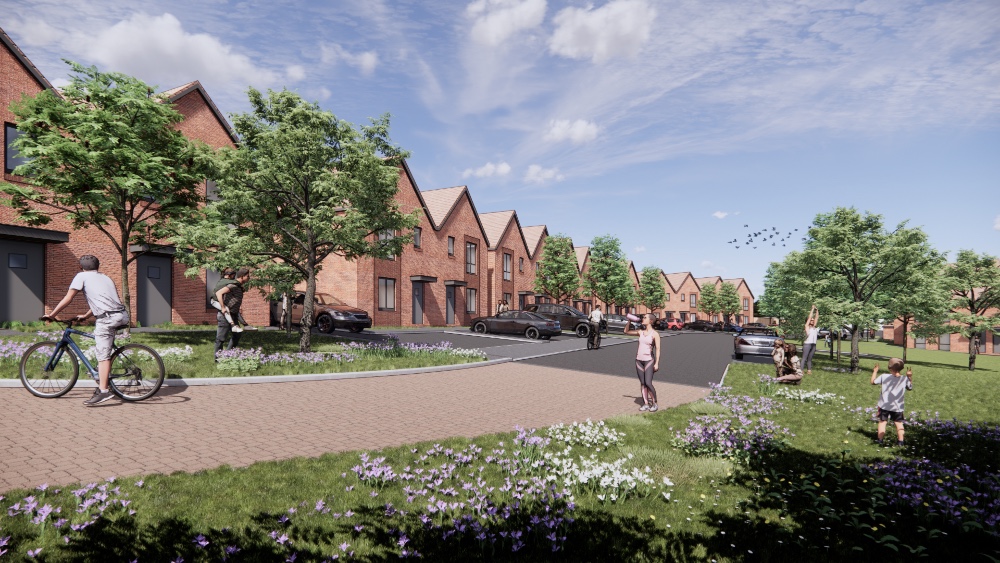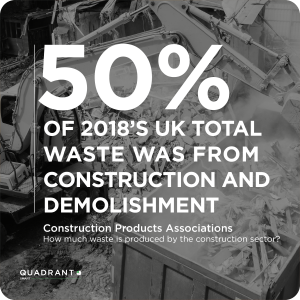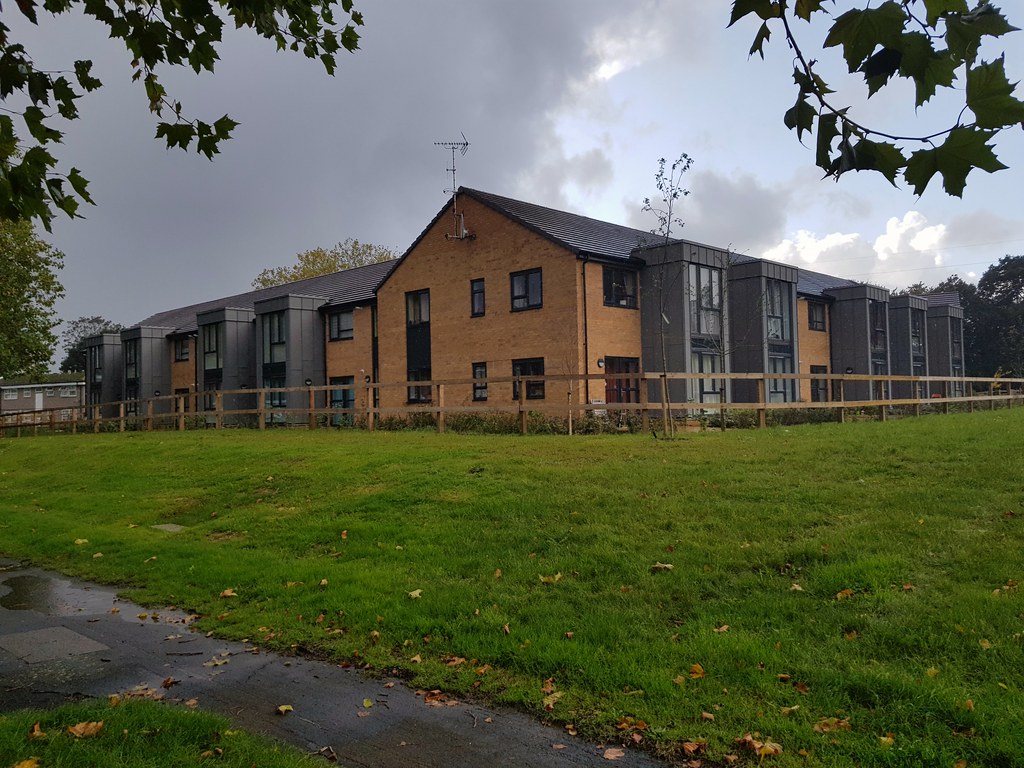How Will Local Communities Reach Net Zero Through MMC?

Housing provider Raven Housing Trust has secured planning permission to build 32 net zero carbon affordable homes in Lewes. Housing Industry Leaders looks at the project and how it will benefit the local community.
Delivered on the site of the former Pells Church of England School, the project will be Raven Housing’s second net zero carbon new-build scheme.
Designed and built by Raven Housing, the scheme will comprise two-bedroom and three-bedroom semi-detached homes for shared ownership. Also, there will be one-bedroom and two-bedroom flats for affordable rent.
The new homes will be built using Modern Methods of Construction (MMC) and are due to be completed by late 2023.
Housing Industry Leaders spoke to Marc Marsh, Senior Development Manager at Raven Housing Trust, who spoke about how this project will help positively drive environmental efficiency and benefit the local community of Lewes.

Marc Marsh. Senior Development Manager at Raven Housing Trust
Affordability Is Key For Raven Housing
Marc said that in 2019/2020, Raven Housing outlined that a very strong commitment to their development pipeline, would be a focus on achieving net zero carbon.
When it comes to why the Lewes project is the right project, he explained that Lewes hasn’t seen a lot of development in recent years in terms of new housing provisions, particularly new affordable housing provisions.
Marc told Housing Industry Leaders: “There is a few schemes but not a great deal. For us as an affordable housing provider, it was key that whatever we can get on this site would be net zero, and it would be 100 per cent affordable.”
A total of 32 units have been approved with a mixed tenure approach, with some being shared ownership. With the rest, there will be a mixture of two different types of rented products – standard affordable rent and Lewes Local Housing.
Marc described Lewes Local Housing as “a rent which is like a stopgap between social rents or old council rents as people know them as, and affordable rent. It is based purely on localised average household earnings.”
It Is Essential To Reach Net Zero
By using MMC, Raven Housing hopes to achieve net-zero carbon affordable homes. Marc said they reached out to several contractors who offer MMC: “We’ve gone out to a number of those contractors, and because MMCs are being produced in a factory, it is like manufacturing a car, they will do things as efficiently as possible.
They will design things so that they’ll be using all of the sheets across the board or use that off-cut because it will fit over there. So, from that, they will reduce their construction waste.
Reducing construction waste is essential as highlighted in Construction Products Associations’ briefing paper ‘How much waste is produced by the construction sector?’, 2018 saw a total waste in the UK of 222 million tonnes. 50 per cent of 2018’s total waste was from construction and demolishment.
Comparing a traditionally built house to with full volumetric modular, Marc explained how an average traditionally built house will have many deliveries of all the widgets to get that house built. Whereas with full volumetric modular, the ground floor, first floor and the roof could be in within four or five lorries.
Therefore, this benefits the project and decreases the carbon emissions emitted: “The construction period is shorter, the number of deliveries to the site is less.”

Local Communities Will Benefit From Net Zero Projects
Benefitting the local community is another aim for Raven Housing, with its mantra being “building homes, changing lives”. They hope that this will be achieved through the net zero approaches: “It is about having a zero-carbon position on managed energy usage. It is about heating, hot water and ventilation, so regulated energy usage will be a carbon outcome. That is combined with an efficient building that is incredibly airtight and thermally efficient.
“When you pull those pieces together in a large jigsaw you get what will be a very sustainable and positive outcome for the local community and for those people that are going to live there for us as the landlord and ultimately the owner of the building.”
Ensuring that tenants get the right information and getting tenants onboard with the concept and outcome is essential. Through this, Raven Housing will be able to receive feedback and data, Marc explained that listening to customer feedback must be taken seriously: “We will obviously be trying to capture some feedback and data to look at the lessons learned because this is only our net zero-project.
“The two are pretty much going to progress through construction at a very similar time. It is about being honest to ourselves that we might not get it 100 per cent right the first time, but we will learn from it.
That is key for Raven, we want to put a lot of focus on getting it right the first time, but there is always going to be a learning opportunity for the next one.
The Industry Needs To Enact Change Now
Marc finished by highlighting the impact that this project will have not only on Lewes but on the housing industry. He said that it is important that the industry makes a change now, not wait for it to happen: “Raven were one of the first to come out so boldly in 2020/2021 to say we are doing net-zero builds. Ignore what the sector is saying, we are in a climate crisis.
Your future, my future, our children’s future, our grandchildren’s future depends upon us making that change.
Raven Housing has just secured a large chunk of finance, Marc revealed, which will help to support their future development pipeline. Funding already secured will help support deep retrofit projects as well.
The key takeaway from the interview was that it is essential that those in the industry shouldn’t just wait for the rest of the industry and construction world to react, as then it’ll be too late.

